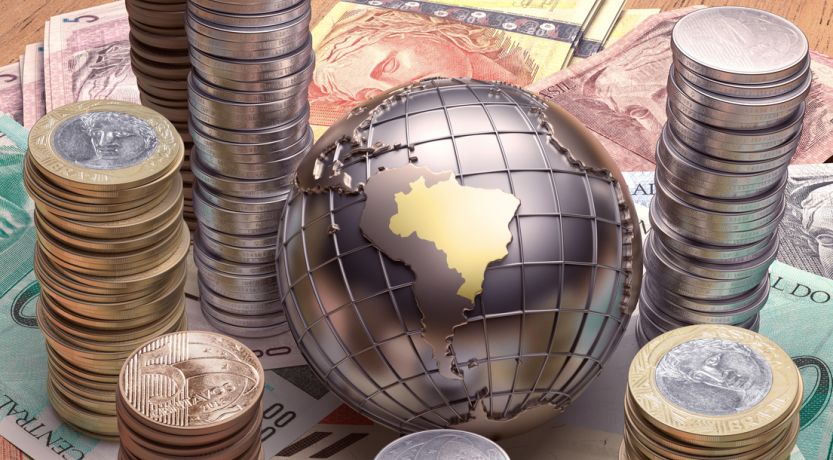The Pope’s Vision for a New World Economy
The pope recently held a conference to discuss ways to change the world’s economy. Will this bring a better “world of tomorrow”—or perhaps something else?

Pope Francis recently held a three-day conference called the “Economy of Francesco.” The conference featured experts and young people gathered to propose a redesign of the world’s economy.
Attendees included specialists in the fields of economy, business, entrepreneurship and social sciences. Pope Francis invited them with the aim of providing the world hope and transforming society into the “world of tomorrow” where no one is left behind.
The pope and the Catholic Church desire to help build an “economy that is inclusive, sustainable and that can help our brothers and sisters to live together in our common home.”
The conference was divided into 12 villages where experts and young people brainstormed changes and ideas that can be made in their areas of expertise (such as work and care, agriculture, energy, poverty, business, finance, lifestyles, etc.).
Papal encyclicals pushing the world to change
The current pope has written several encyclicals to share his views on how this world needs to change in order to bring about a better world.
In June 2015 the pope released an encyclical called “Laudato Si: Care for Our Common Home.” In it, he focused on humanity’s relationship with the environment. Addressed to everyone on the planet, he highlighted the climate crisis and called for “radical ecological conversion” with the suggestion of a “Sabbath rest” for the environment.
- To save this world we must unite as a “single human family” and as “brothers and sisters.”
- “Global action” is needed to address “global problems.”
- An “open world” needs international trade that leaves no one behind by addressing the “ethics of international relations.”
- “Global governance” and “international collaboration” are needed to deal with migration due to crises that occur within nations.
- Changes are needed in politics to center on “human dignity,” as opposed to centering on finance and the marketplace.
- The United Nations needs to be reformed to have a renewed focus on world economics and the world community as a “family of nations.”
- Due to weapons of mass destruction, he urges nations to change their thinking from occasionally waging “just wars” to “never again war.” To achieve that, he urges nations to eliminate nuclear weapons and divert monies used for weapons to the elimination of hunger.
- We need to eliminate the death penalty and the killing of the unborn.
The pope is not looking to improve the current economic system. Instead he wants a “radical change” to the economic system, mainly the market-driven system that has dominated the world since World War II. It may be surprising to some readers that a religious leader is expressing such strong views on issues that are usually the realm of politicians and academics.
Though many of these goals may seem noble to many people, they all have one missing dimension: Only God can create a perfect society. These goals ignore Bible prophecies that show that a human system will come on the scene that will try to change the world—but ultimately will do more harm than good.
Prophecies about a church with global and economic influence
The Bible has a lot to say about the world’s future. Among the prophecies are those of a global religious power that will rise to great influence.
The book of Revelation in particular speaks often of a “woman” representing a religious entity, or church. A false religion is sometimes referred to as a “harlot,” while God’s true Church is pictured as the opposite, a “chaste virgin to Christ” (2 Corinthians 11:2).
The false church at the end time is prophesied to have vast political and economic power and influence over various nationalities and languages (Revelation 17:1, 15). It also will be politically connected to the “kings of the earth.” The Bible describes this relationship as “fornication”—because they corrupt each other and use each other for their own agenda.
The “kings” this church is connected with represent an end-time resurrection of the Roman political and economic system (Revelation 17:12). The false religious system is connected with a city (Revelation 17:18), which many see as an obvious reference to the city of Rome.
As we approach the end times, the Bible shows we should not be surprised to see a religion trying to exert more influence over the world’s economic system.
This partnership will not be peaceful. It will actually wage war on God’s true Church and be guilty of the “blood of the saints” and “the blood of the martyrs of Jesus” (Revelation 17:6).
One reason this religious system will be so popular is because its leader will have the ability to perform miracles (Revelation 13:13-14). Many of these “signs and wonders” may benefit people and may seem to be from God. In actuality, though, they will be from Satan. This system will try to enforce a false system of belief and worship that deceives people and persecutes those who resist it (Revelation 13:12-15).
The “Economy of Francesco” should be particularly interesting because the book of Revelation also shows this religious system will have great economic power. It will have the ability to control people’s ability to “buy or sell” (Revelation 13:17).
By no means are we saying the “Economy of Francesco” is the direct fulfillment of these prophecies. But it is a significant trend that the leadership of the Roman Catholic Church is increasingly trying to insert itself into economics and politics. It’s a trend students of prophecy should watch closely.
As we approach the end times, the Bible shows we should not be surprised to see a religion trying to exert more influence over the world’s economic system and become more integrated into European politics. We recommend you read our recent blog post on “Pope Francis’ Vision for Europe.”
A much better “world of tomorrow” is coming
With his “Economy of Francesco,” Pope Francis is trying to create a better “world of tomorrow” that leaves nobody behind. But the reality is it will fail because it can’t address the root cause of our problems: the issue of the human heart. The Bible shows the “heart is deceitful above all things, and desperately wicked” (Jeremiah 17:9).
Though all economic models have their flaws (some more than others), an economic system is only as good as the integrity of the people that lead it and participate in it. When people are unrighteous, it doesn’t matter how good the economic model is—it will result in unfairness, greed and corruption (Proverbs 29:2).
This world really needs leaders who practice God’s laws, fear God, are always honest, don’t take bribes, show no favoritism and reject covetousness (Exodus 18:20-21; Deuteronomy 16:19; Proverbs 24:23; 1 Timothy 3:3). The Bible shows that a world with leaders like this is coming—but it won’t be brought about by the efforts of any human political or religious leader.
The good news is, Jesus Christ is returning. He’s not coming back to fix the current broken system. He’s coming back to institute an entirely new system! It will be a new government that will address the issues of the heart that plague our world today (Ezekiel 36:26-27; Jeremiah 31:33-34). He will rule over this world as “KING OF KINGS, AND LORD OF LORDS” (Revelation 19:16; Isaiah 9:6-7).
There is a better “world of tomorrow” coming. The Bible actually calls it “the world to come” (Hebrews 2:5).
What this world needs is not the “Economy of Francesco,” but the “Economy of Jesus Christ”—His perfect rule and leadership.
Photo credit:
iStock.com/ktsimage
Date Posted: December 8, 2020



